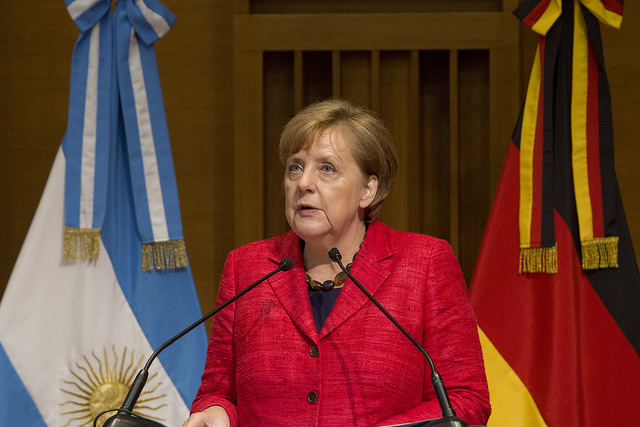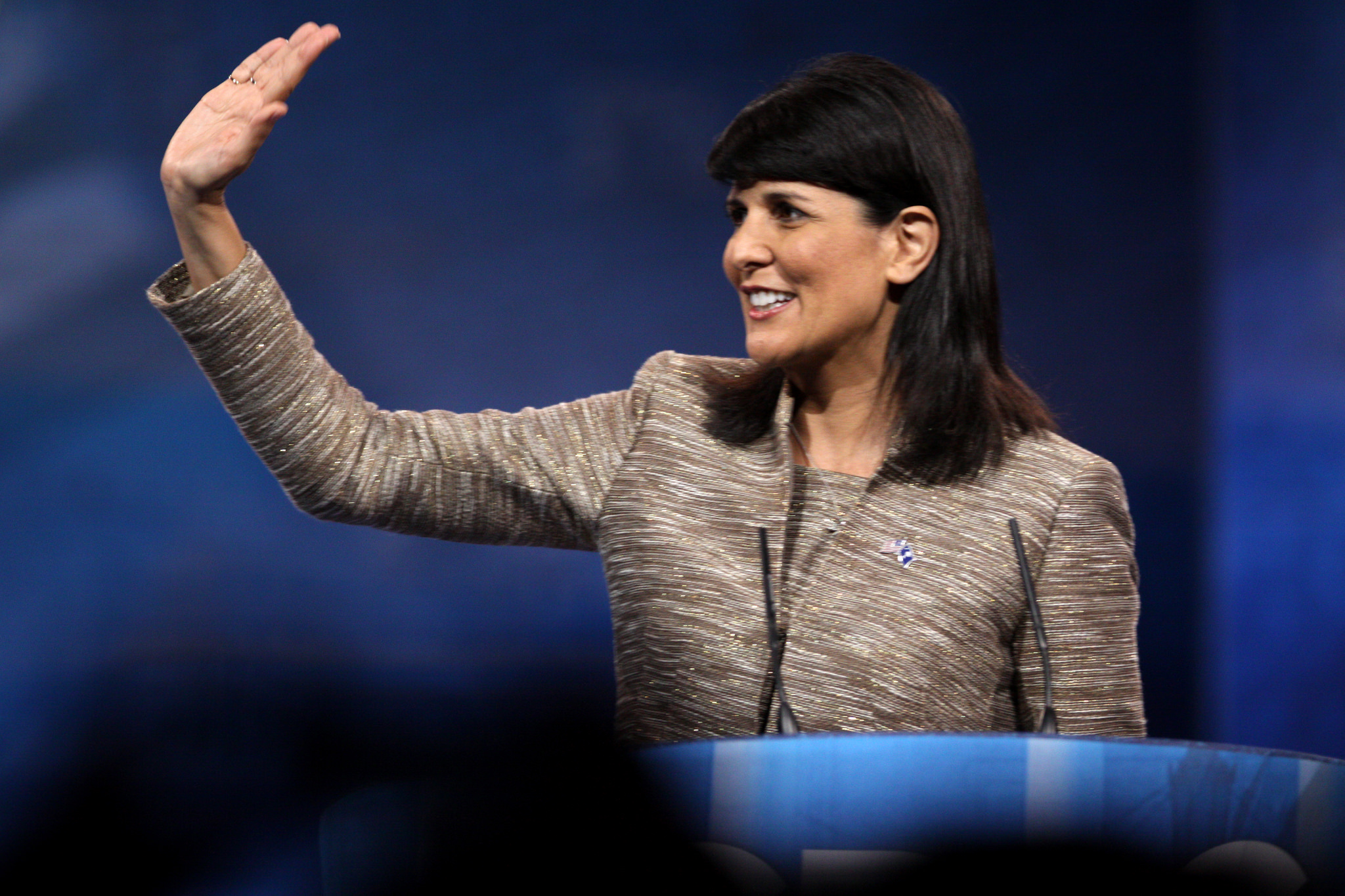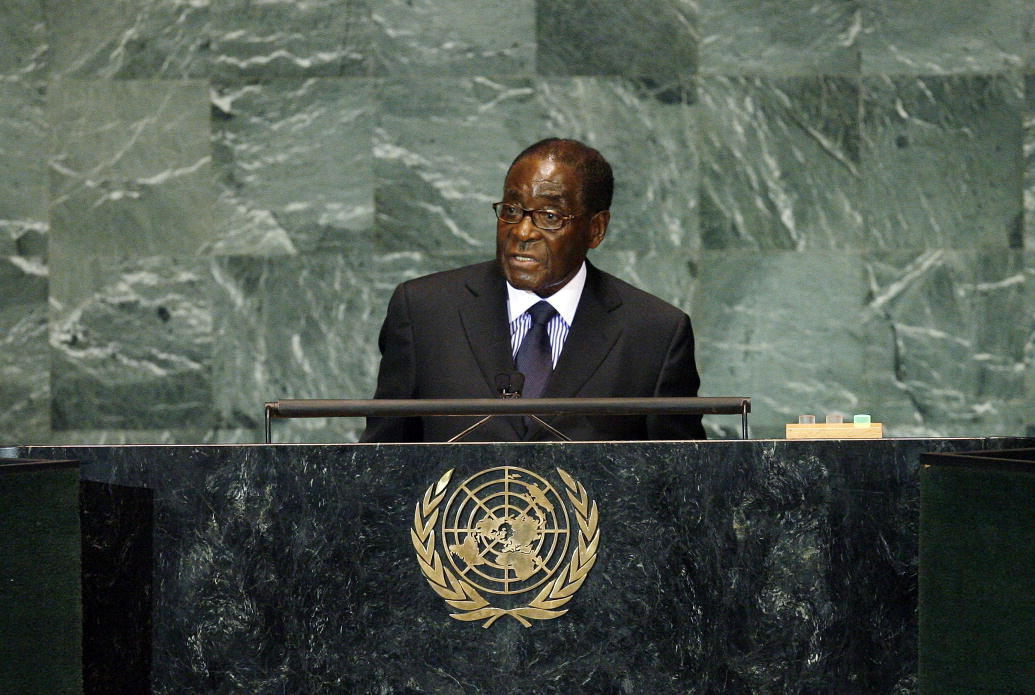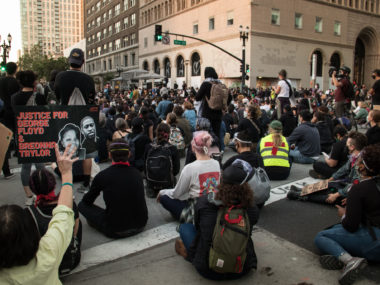Rachel A. Epstein’s Interview with Donald Abenheim and Carolyn Halladay of the Naval Postgraduate School
EPSTEIN: We’ve been reading for many months that it’s likely the CDU/CSU coalition will prevail in the upcoming 24 September German elections and that Angela Merkel will again serve as Chancellor, although a large swath of the German electorate says it’s undecided. Are there any possible upsets in the next elections, or what are you looking for?
ABENHEIM/HALLADAY: The political press in Germany has recently commented on two electoral trends. The first in the headlines is more of the same with Mutti (i.e. Merkel) in the Bundeskanzleramt. This is a variation of the Konrad Adenauer motto of sixty years ago: Keine Experimente, meaning “No Experiments!” This slogan brought Adenauer’s biggest victory in 1957 in a prosperous West Germany. Yet the second tendency comprises the imponderables in western democracies, which is to say, as much as the voters normally eschew experiments, no citizen can escape the surprises and shudders that have become all too familiar since 2008. These shocks found their bloody climax with the kidnapped truck destroying the Christmas Market on Berlin’s Breitscheidplatz in December 2016. The onset of political violence across the board from the G20 summit in Hamburg to the foiled plots of neo-Nazis to murder political figures constitutes an arena of surprise.
EPSTEIN: Is Russia trying to meddle in the German elections has it has in other European and American elections?
ABENHEIM/HALLADAY: Russian disinformation against leading German politicians is another imponderable by dint of computer theft of the Bundestag emails. But Germany has long had politicians more or less openly in the sway of the Kremlin on the left and the right. The nation boasts many pro-Russian interest groups who work either out of economic benefit or an ideological one to Moscow’s profit. Unlike in the post-modern US, Russia never ceased being a constant factor of German politics and bulks less shock value than in the millennial minded USA clueless about geopolitics.
Surprises aside, Merkel dominates the German election campaign of 2017. She appears at this moment to have mastered all such crises as the European debt disaster, the Crimean Anschluss, the refugee apocalypse, the blast of home grown terrorists, and Trump appearing to renege on Article V of the Washington Treaty. She has blunted and managed it all with her calm, understated Mecklenburg form of rule, joined with a penchant for surprises and jolts in statecraft, such as the end of nuclear power and the open borders in September/October 2015. Otto or Bettina Normalverbraucher, i.e. the voter, can well contrast her to the Katzenjammer Kids in London and Washington, or to the aspiring dictators in Warsaw and Budapest or their more secure despot colleagues in Ankara and Moscow.
EPSTEIN: In the United States, we’re used to fairly frequent political party turnover. Why is it that in Germany, already after 12 years of Merkel’s leadership, the opposition (namely the Social Democratic Party, SPD) doesn’t have more traction?
ABENHEIM/HALLADAY: The SPD candidate Martin Schulz is a fine politician and a decent man, but as an electoral personality, he’s no Kurt Schuhmacher, Willy Brandt, Oskar Lafontaine or Gerhard Schröder. From the moment in the European Parliament where Silvio Berlusconi engaged in national stereotypes to defame Schulz, the latter has been an important socialist figure in European statecraft and a force for democracy and prosperity. Europe and the EU have wrongly become the butt of populist-nationalist fury and establishment ennui and Schulz fought to repulse the tide against the EU. In a different time in the history of the FRG, perhaps, Schulz would have found a bigger electoral following with his biography of working class self-education via the book trade that accords with many great social democrats. But he is no match for Merkel, in her magisterial capacity in the vein of FDR, or more recently of Bill Clinton and Tony Blair, to absorb disparate political positions and integrate them into a grand coalition that has lately become a signal feature of German political life, for good or ill. Nor does he have the bite of Sarah Wagenknecht, head of Die Linke, who is somehow heir to Rosa Luxemburg, even when perched on her mountain bike and outracing her famous husband Lafontaine. That Schulz made his way without Abitur (the university qualification exam) is held against him by the educated middle class that cannot surmount its own snobbery, although Americans think the German fetish for titles and diplomas verges on lunacy. All the same, the fact that Mutti was also a physics professor is not lost on many and had been surely a source of her success in addition to her great skill as a politician.
EPSTEIN: Public support for the nationalist Alternative für Deutschland (AfD) declined in recent months. To what do you attribute this change?
ABENHEIM/HALLADAY: When a native of Hamburg in the Merkel cabinet posed questions about German culture recently, Alexander Gauland (a leading politician in the AfD) made headlines in the final days of August 2017 with the promise to “dump” the SPD Minister for Integration Aydan Özoğuz (the daughter of Turkish parents) into the eastern marches of Anatolia. He used the verb entsorgen to connote not only garbage but also with a hint of what Victor Kemperer identified as the Language of the Third Reich in the word “umsiedeln” (“resettle”). All in his earshot could hear the same dog whistles present at Charlottesville (see below).
AfD hired U.S. Texas Senator Ted Cruz’s ad firm to prepare a series of ads depicting the Merkel chancellorship in the frightening image of blood drenched tire tracks on cobblestones. In other words, Mutti’s multicultural nightmare enabled the Berlin terror assault and so many other vehicular Islamist terror acts across the face of Europe since the fall of 2015. Alexander Gauland and Alice Weidel (the latter has emerged as the leading woman AfD figure in the wake of the intrigues against Frauke Petry) are leading the party into an election where they may well garner a double digit result in the vote. This sound and fury begs the question of quo vadis for this most recent form of German nationalism in the long story of this political phenomenon. Originally an anti-Greek bail out party that chafed under the political economy of Merkel’s grand coalition, the refugee crisis has remade the party into a nationalist, indeed, xenophobe movement devoted to anti-immigration and law and order with a German accent. Most fateful, however, are AfD’s echoes of blood and soil—a term that has repugnant associations despite all the best efforts to repackage this old concept as something hip and trending among millennials seemingly clueless about the past.
In November 2016, when this space last considered the AfD, events seemed to hurtle the party toward a pinnacle of power in Germany made more shocking because of the Brexit and the Trump revolution. With its flash electoral successes of 2016 in hand, the party has since assumed a presence in 13 of the 17 state parliaments. It has changed Germany’s political landscape in shocking ways of driving Greens and Christian Democrats together. Yet, in the year since, a kind of revival of countervailing forces in the center and left have shown in the electorate in the defeat of Norbert Hofer in Austria, of Geert Wilders in Holland, and Marine Le Pen in France. Space here precludes an examination of the impact of Brexit and Trump on the German body politic, but these events have not helped the AfD as a dismayed and startled person may have expected in the onslaught of a year ago.
On the other hand, the key question may be the general health, solidity, and center-right allure of the CDU/CSU—and not just as the apparent foundational assumption of the Merkel reelection campaign. We don’t mean to stretch too far the excellent historical analysis of Daniel Ziblatt’s volume of this year, Conservative Parties and the Birth of Democracy—which examines, in part, how the failure of a moderate (and moderating) German conservative party to institutionalize between the mid-19th century and the end of the Weimar Republic correlates with the hamstrung democratization of pre-World War II Germany. But the broader implication may be that without a coherently center-right home, voters will direct their political activity elsewhere. And as the CDU seems to edge further to the left in some of its policies and positions, it may be losing support on the right—and not just on the extreme or fringe. Meanwhile, the party itself may lose its clarity of ideological purpose and organization, exacerbating its own entropy.
EPSTEIN: Germany’s relationship with the US is strained. Will Germany take concrete steps to move toward a more independent European security architecture going forward, or will NATO continue to be the prime repository of Transatlantic security cooperation?
ABENHEIM/HALLDAY: While Merkel has pledged to increase German defense spending to the 2014 NATO Summit goal of 2 percent, the SPD’s Schulz has recently played the boy on the burning deck with nuclear weapons, a reprise of Kampf dem Atomtod (1957) or the Intermediate Nuclear Forces (1983) crisis of blessed memory. But nuclear weapons hardly figure in the minds of most voters today. A copy of the late Guido Westerwelle’s putsch from a decade ago, Schulz’s German proposed withdrawal from the nuclear force posture of NATO would in effect mean two unacceptable things: 1.) a German withdrawal from NATO itself; and 2.) the throwing of central and eastern European NATO nations to the Russians at the worst possible time. None of this avails German prosperity and security in the end. Most voters know these facts, although few politicians will say so openly in this election campaign.
Many Germans love to hate NATO, while Merkel and those who share the reins of power know that little alternative really exists to the trans-Atlantic security framework that NATO establishes. This statecraft gave rise to the FRG originally and enabled unity in 1990, all tendentious fussing about the timeless genius of Egon Bahr notwithstanding. Merkel rightly observed that Berlin can reckon somewhat less with Washington than in former times, a moment felt by Adenauer and Schmidt in other contexts. All the same, Mattis, Tillerson and other level-heads in what is a bumpy US administration have adhered to the primacy of Dean Acheson’s alliance statecraft in a manner that would have even pleased Kohl or Adenauer. The generals at the helm in the White House understand the imperatives of a close German-American security relationship. Episodes of German-American strain comes and go, and, to adapt the quote by Stalin, the Trumps come and go, but the German-American relationship rests on more than the personalities of two heads of state.
EPSTEIN: What has the German public (and political) response to the events in Charlottesville been? And what do you think Merkel has gleaned from the US administration in light of President Trump’s response to white nationalists?
ABENHEIM/HALLADAY: U.S. policy in 1944–1945 was that of denazification, democratization, decartelization, and demilitarization. While the demilitarization piece was presently abandoned by the outbreak of the Korean war, the denazification part of the program endured, resulting in the more or less complete re-education of German youth, which succeeded beyond anyone’s expectation. Enough historical memory of this policy survives among elites in Washington and Berlin. Mortification was generalized in the face of a very senior politician somehow making amends for neo-Nazi Halbstarken (aggressive youths) in preppy clothes trying to imitate the torch-light parades of Nuremberg at one of the holy shrines of U.S. democracy, the University of Virginia.
U.S. domestic politics of race and the antics of Trump’s fabled “base” are standard fare in most of the serious German press, which still devotes space above the fold to life in the US out of habit cultivated over the decades. This interest in American politics, society and culture constitutes a part of present-day Germany, despite Gauland, Höcke and PEGIDA’s horror at this fact. Charlottesville crossed some kind of symbolic threshold, however, where the general revulsion on both sides of the Atlantic swiftly leads German opinion writers to remark on the many links between the original Nazis, neo-Nazis, and the Identitarian variant of blood-and-soil integral nationalism that Breivik (the Norwegian mass-murderer) introduced a while ago, but which all the same cleaves to its prototype of the epoch 1889–1945.
A fair few of our international officers were shocked by Charlottesville—mostly that white supremacists exist in the United States in such number. Just as noteworthy to many of them is the extent of the U.S. First Amendment as it regards even very odious political gatherings and speech. The official German response has been fairly low-key—what can anyone really say?
It does not appear that Mutti had a very high opinion of The Donald to begin with; most likely, her biggest challenge since Charlottesville has been figuring out how to say “I knew it” without sounding truculent or otherwise burdening a bilateral relationship that is far from healthy in its various aspects of security, economy, and culture.
One has also to say that the signal lack of legislative accomplishments in the congressional agenda of the new White House, when levied against a worsening geopolitical situation, has hardly redounded to the benefit of AfD. Too many of its members nurture a classical anti-American dogma that originated in the 18th century and made its way through certain regimes in the 20th century so as to live on in the 21st. For so many AfD voters, Trump manifests the most repugnant traits of the American way of life that threaten “good olde Europe,” that is, a conservative German tradition to the first Reich. Behind all this lurk, though, those who make a barely concealed attempt to use George Soros fill in for Jüd Süss. Such ideas may appeal to those entranced with the empty promises of blood and soil, but it also means fewer vacations on Mallorca or Phuket in a world of newly thrown up fortifications, guard towers and incipient world wars. Many voters seem to realize this sobering fact, all to the detriment Dr. Gauland and Dr. Weidel’s tirades of anti-immigrant and Deutschmark Wutbürger rhetoric.
One can only hope that Mutti holds the line, because she bears a lot on her able shoulders. Meanwhile those who aspire to displace her seem less able to grapple with the multiple crises examined in this essay. No one here wants an October surprise on the Spree, Havel and Krumme Lanke!
The views expressed here the authors’ own and do not represent the position of the US government or the US defense department.







